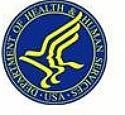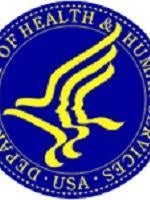Streamlining electronic funds transfers in health care will bring total savings to more than $16 billion over 10 years
New standards for electronic funds transfers in health care, required by the Affordable Care Act, will reduce up to $4.5 billion off administrative costs for doctors and hospitals, private health plans, states, and other government health plans, over the next ten years, according to estimates included in new rules published today by the U.S. Department of Health and Human Services (HHS). The standards build upon regulations published earlier this year that set industry-wide standards for how health providers use electronic systems to quickly and easily determine a patient’s eligibility for health coverage and check on the status of a health claim.
Together, the two regulations implementing the Administrative Simplification provisions of the Affordable Care Act and the Health Insurance Portability and Accountability Act (HIPAA) are projected to save the health care industry more than $16 billion over the next 10 years. These savings come from the adoption of electronic standards that will help eliminate inefficient manual processes and reduce costs.
“Thanks to the Affordable Care Act, health care professionals will spend less time filling out paperwork and more time focusing on delivering the best care for patients,” said HHS Secretary Kathleen Sebelius.
An April 2010 study in the journal Health Affairs found that physicians spend nearly 12 percent of every dollar they receive from patients to cover the costs of filling out forms and performing other excessively complex administrative tasks. The study found that simplifying these systems could save four hours per week of professional time per physician and five hours of support staff time every week – time that could be better spent on patient care.
“As a nurse, I know the importance of giving health care professionals time to focus on patient care,” said CMS Acting Administrator Marilyn Tavenner. “The less time a physician has to spend on paperwork is that much more time that can be devoted to patient care. Having standardized procedures across the health care industry can only lead to lower costs and greater efficiencies all around.”
Today’s rule—the Adoption of Standards for Health Care Electronic Funds Transfers and Remittance Advice — adopts streamlined standards for the format and data content of the transmission a health plan sends to its bank when it wants to pay a claim to a provider electronically (through an electronic funds transfer) and to issue a Remittance Advice notice. Remittance Advice is a notice of payment sent to providers that may or may not accompany the payment the provider receives.
For example, currently when a provider submits a claim electronically for payment, a health plan often sends a Remittance Advice separately from the Electronic Funds Transfers payment. The disconnect between the two makes it difficult or sometimes impossible for the provider to match up the bill and the corresponding payment. Today’s rule addresses this by requiring the use of a trace number that automatically matches the two. The new tracking system will allow health care providers to eliminate costly manual reconciliation that must currently be done.
Future administrative simplification rules will address adoption of:
- A standard unique identifier for health plans;
- A standard for claims attachments; and
- Requirements that health plans certify compliance with all HIPAA standards and operating rules.
The regulation is effective January 1, 2012. All health plans covered under HIPAA must comply by January 1, 2014.
To view the Interim Final Regulation with comment period, go to: http://www.regulations.gov
For more information on the June 2011 HIPAA Administrative regulation: Adoption of Operating Rules for Eligibility for a Health Plan and Health Care Claim Status, visit: http://www.hhs.gov/news/press/2011pres/06/20110630a.html




 />i
/>i

